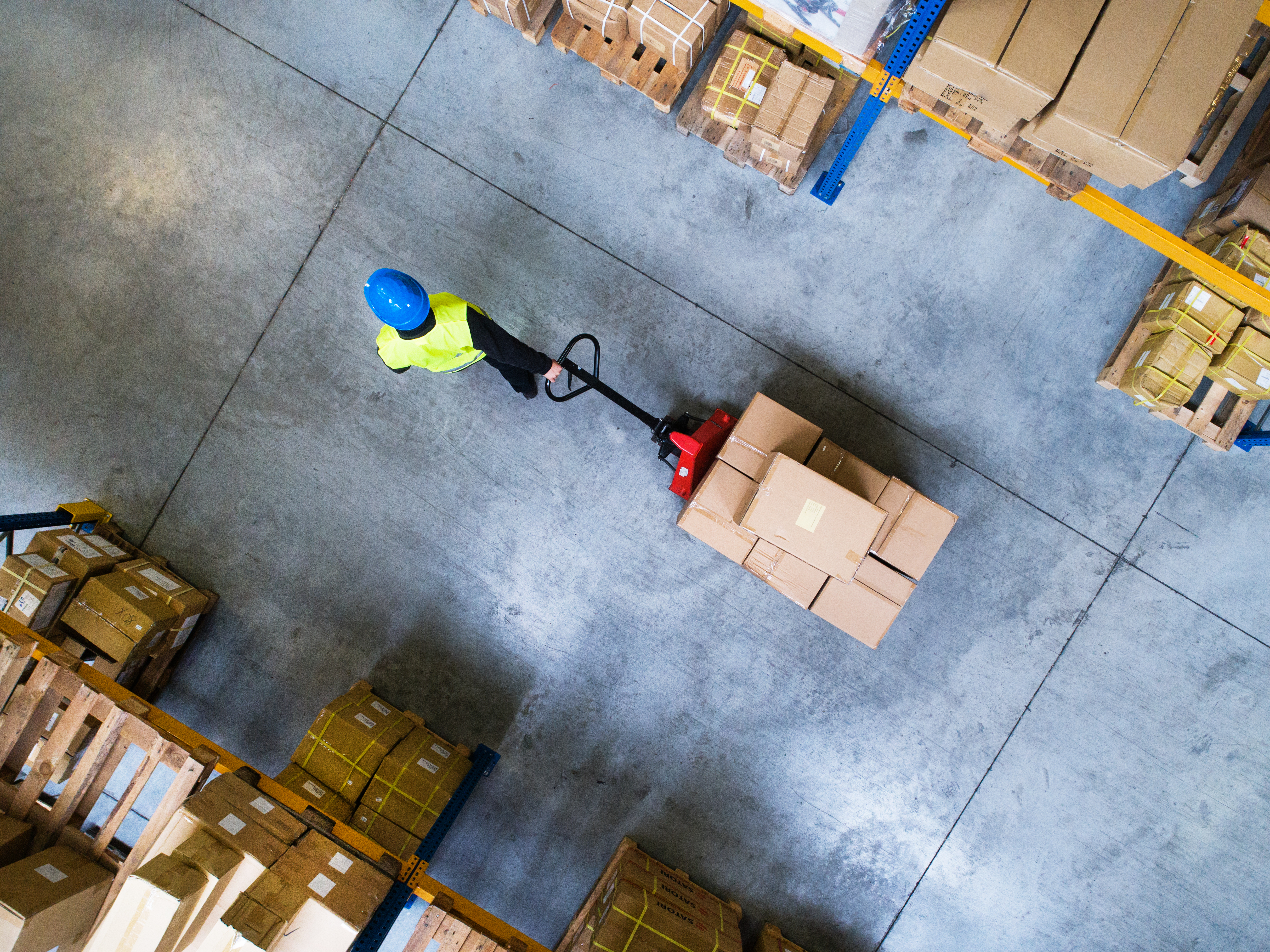Case Study

Distilled beverages distributor achieves $10 million in annualized cost savings with Uber Freight’s new warehousing design
Results
Solution
Customer
Industry: Distilled Beverages
Size: 400+ employees
Customer Profile
A global distilled beverages importer and distributor decided to partner with Uber Freight to reevaluate its existing workflows and address persistent warehousing inefficiencies. The distributor always strives to deliver a timeless taste of celebration to its customers, but to keep up with rising demands, its leadership team first needed to ensure that their products were being stored properly and processed on time for shipping.
The company looked to Uber Freight for guidance after its primary warehousing facility began to struggle with storage costs. While the leadership team had already outsourced the site to another third-party logistics provider at the time, Uber Freight’s Consulting team stepped in to play an important role by filling in gaps that existed in their current working arrangement, offering expanded insights into what was actually causing these process inefficiencies, and conducting an objective assessment of the warehousing design to deliver actionable recommendations.
Through benchmarking KPIs and evaluating site operations, Uber Freight was able to pinpoint systemic and operational shortcomings in the facility’s warehousing capabilities that were driving up costs—in particular, experts identified the facility’s ineffective use of warehouse space and slow stock replenishment process, as well as a misalignment of systems and labor that resulted in frequent shipping delays.
Opportunity: High warehousing costs due to
inefficient facility design


Opportunity
For any business, warehouse optimization is a necessary step to minimize storage costs and achieve timely order fulfillment. In this case, the goal was for Uber Freight to identify broken links in existing processes—and ultimately, maximize labor, space, and storage efficiency for the entire facility.
Throughout the assessment, Uber Freight’s Consulting team took an active role in mapping out processes, rooting out areas of improvement, and offering functional recommendations to uplevel the beverage distributor’s warehousing potential. By working closely with the company’s leadership team and their third-party logistics partner, Uber Freight’s experts successfully leveraged their findings to inform the implementation of a new warehousing design.
First, Uber Freight’s assessment process identified an opportunity for the business to revise its picking strategy to better accommodate inbound orders. At the time, its site operations had been following a combined approach that involved both case picking and pallet picking, which meant that a wide variety of the company’s products were moved together in large cases, cartons, or pallets to a designated packing area.
But after Uber Freight’s experts evaluated the warehousing layout, it became clear that the site needed to segregate specific case picking areas in order to move items out from reserve storage more efficiently. By benchmarking key metrics like units picked per hour (UPH), manpower productivity rates, and carrying cost of inventory, Uber Freight recommended that the company reorganize its warehousing layout to speed up its replenishment process.
In addition to space utilization, the Consulting team looked at how the facility’s warehouse management system (WMS) supported site operations. As a result, experts were able to identify a number of systems limitations, such as data unavailability and deficiencies in technology, which also contributed to inefficiencies in stock replenishment.
Knowing that it may take many months, even years, for the beverage distributor’s IT team to execute large-scale improvements with WMS changes, Uber Freight opted for a more nuanced approach by recommending manual augmentations to shore up existing gaps, just until updates to the system were completed.
By building out a replenishment process that could be operated semi-manually, the company no longer had to rely solely on an ineffective system. And by identifying specific areas of deficiency on a case-by-case basis, Uber Freight’s experts were also able to make more refined recommendations by distinguishing between the need for manual or automated support—enabling the company to make effective decisions depending on the issue at hand.
Finally, based on the Consulting team’s recommendations, the distributor improved its facility’s overall labor utilization by increasing facility throughput with a daily operations management system. By setting up productivity targets and making information around order flows more accessible, leaders were able to allocate staffing more effectively and enable proactive decision-making on site to save on costs.
Solution: Optimize pick strategy, space utilization, and site
operations with Uber Freight’s Consulting team
For any business, warehouse optimization is a necessary step to minimize storage costs and achieve timely order fulfillment. In this case, the goal was for Uber Freight to identify broken links in existing processes—and ultimately, maximize labor, space, and storage efficiency for the entire facility.
Uber Freight’s Consulting team worked closely with the beverage distributor’s leadership team and their outsourced logistics partner, helping facilitate a smooth, natural transition process for implementation. The role required a comprehensive understanding of their working relationship—and Uber Freight ensured that input from both parties was equally represented during the strategizing process.
As a result, the company’s primary distribution facility experienced dramatic improvements in storage efficiency and stock replenishment. Over the course of their partnership with the Consulting team, the distributor saw its facility’s UPH jump by 47%. Strategic adjustments in staffing also led to lower equipment costs overall, helping the leadership team optimize their on-site operations and processes for long-term success.
After only six months, the company’s warehouse redesign successfully saved $10 million in storage costs—almost half of its original annual spend. With the help of Uber Freight’s Consulting team, the beverage distributor was able to execute highly effective solutions to persistent facility-wide issues, leading to timely order fulfillment and, in effect, increased customer satisfaction.
Results: Uber Freight’s warehousing redesign cuts
costs by 47%

Connect with an expert